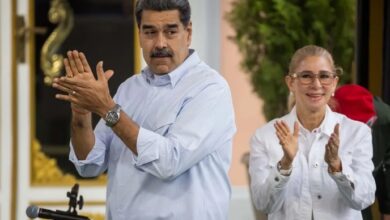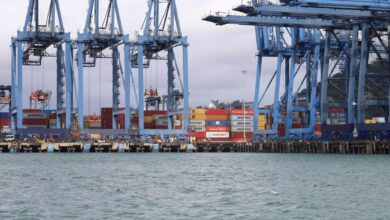Colombia: what is the Security and Defense Plan about?
Listen this article
On Wednesday, February 6, Colombian President Iván Duque presented his Security and Defense Plan, what did he point out?

Iván Duque, president of Colombia, presented the Security and Defense Plan, which will be valid during his four years in office. The military fort of Tolemaida was the site chosen to make the presentation of the plan, which is denominated as "a modern, comprehensive, looking at Colombia in all its dimensions", as stated in the event.
Leer en español: Colombia: ¿de qué se trata el Plan de Seguridad y Defensa?
Hoy presentamos la Política de Defensa y Seguridad para la Legalidad, el Emprendimiento y la Equidad. Esta es una estrategia moderna, integral, comprensiva, que mira a Colombia en todas sus dimensiones. #DefensaYSeguridad pic.twitter.com/KUI7GMJIqY
— Iván Duque (@IvanDuque) 6 de febrero de 2019
The function of this plan is to create action routes to be able to provide solutions to threats "and security challenges, from a multidimensional approach and in order to strengthen state legitimacy", as stated by Canal Uno. During the presentation, the Minister of Defense, Guillermo Botero; the high commissioner of peace, Miguel Ceballos and the post-conflict adviser, Emilio Archila were present, according to Semana.
The president referred to the country's security as a "democratic value and the purest of public goods". He also stressed that the government "believes deeply on security as a vehicle for the construction of peace in Colombia."
Nuestra Política de #DefensaYSeguridad también integra la cooperación con otros países para enfrentar el delito y el crimen transnacional; que Colombia tenga un mejor control fronterizo con tecnología satelital, con sistemas de seguimiento para la protección de nuestra soberanía. pic.twitter.com/fUnb1qyMaR
— Iván Duque (@IvanDuque) 6 de febrero de 2019
The main points
Through a statement from the Ministry of Defense of the country, the document presented focuses on "the construction of legality and seeks to respond to the different phenomena of crime such as drug trafficking, the illegal extraction of materials, extortion, and smuggling." The document focuses on several main points, here some of them:
1. Goodbye to dialogues with illegal groups
Within the document, there is no mention of the bilateral ceasefire, nor disposition to be able to sit at a dialogue table with groups outside the law. In this way, the president affirmed that "the ELN responded with barbarism and hatred of terrorism, this government is not going to allow violence and terror to be methods to gain privileges."
On the other hand, and regarding the dissolution of illicit groups, to achieve it, two important points have to be established. The first is to concentrate the entire armed structure in delimited geographical spaces. The second point, according to the FM, is to stop all types of criminal activities.
2. Environment
As one of the great novelties, within the security plan, is the care for the environment, biodiversity, and water. By becoming a national concern, everything possible must be done to effectively take care of it and prevent it from becoming endangered due to deforestation, drug trafficking, and illegal mining. In addition, the intention is that with this policy, there will be created the Environmental Forces, as El Tiempo affirms.
3. The 5 pillars of the Defense Sector
As published by the Ministry of Defense, the document argues that the bases to lead the Defense Sector in a transformation oriented to human dignity and the protection of the territory, have 5 important pillars.
1. Recognition of water, biodiversity and the environment as strategic assets of the nation.
2. Establish cooperative security, this is international security models based on the cooperation of States to guarantee security and peace internationally
3. Dismantling of illicit economies (narco-cultures)
4. Intervention and recovery of the territory in those areas affected by the war
5. Take into account innovation, science, technology, which seek to be at the forefront when counteracting with new maneuvers of action.
The controversies
For the deputy director of the Peace and Reconciliation Foundation, Ariel Ávila and in dialogue with Red + Noticias, the strategy presented by Iván Duque "presents two problems". The first is that it is an almost identical copy of those proposed by Álvaro Uribe. For Ávila "there is nothing new in military strategy and tactics".
The second similarity has to do as "there is a budgetary aspect that is accepted for the first time in the document", the foregoing would be devoted to the fact that the number of policemen could not be increased.
On the other hand, one of the issues that may be more worrying in terms of territorial recovery and security is spoken, are the "networks of civic participation", Duque seeks that, before the end of the year, about 1 million people are part. As El Tiempo expresses it, "the project sounds very similar to the famous cooperator networks promoted by the Álvaro Uribe government in 2002." However, the argument to affirm that this is not true is the use of technology "to maintain permanent communication and achieve a better response from the authorities."
LatinAmerican Post | Laura Viviana Guevara Muñoz
Translated from 'Colombia: ¿de qué se trata el Plan de Seguridad y Defensa?'





